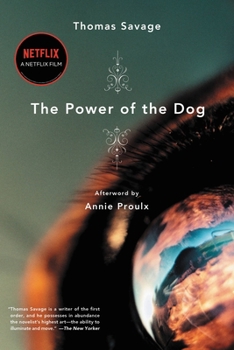The Power of the Dog
Select Format
Select Condition 
Book Overview
Now an award-winning Netflix film by Jane Campion, starring Benedict Cumberbatch and Kirsten Dunst: Thomas Savage's acclaimed Western is "a pitch-perfect evocation of time and place" (Boston Globe) for fans of East of Eden and Brokeback Mountain. Set in the wide-open spaces of the American West, The Power of the Dog is a stunning story of domestic tyranny, brutal masculinity, and thrilling defiance from one...
Customer Reviews
Gripping psychological study of Western machismo
Tense, harsh, twisted, powerful
Incredible!
The Power of Tom Savage
A treasure to the letters ...
The Power of the Dog Mentions in Our Blog

Sometimes, the best literature gets delivered to our television screen before we've had the chance to read it. But even if you've already watched, it's never too late to read. Here are the books behind 26 of the best adaptations on Netflix right now.

Watching the Oscars this weekend? If so, you’ll want to catch up on the literature that served as inspiration for some of the nominated movies. Plus, we share some of our favorite book-to-screen best picture winners from the last quarter century.

The pandemic put many exciting film releases on hold, but movies are back, baby! And, in keeping with our key interests, we've put together a list of upcoming book-to-screen adaptations that we can't wait to see. (But only after we read, of course.)





